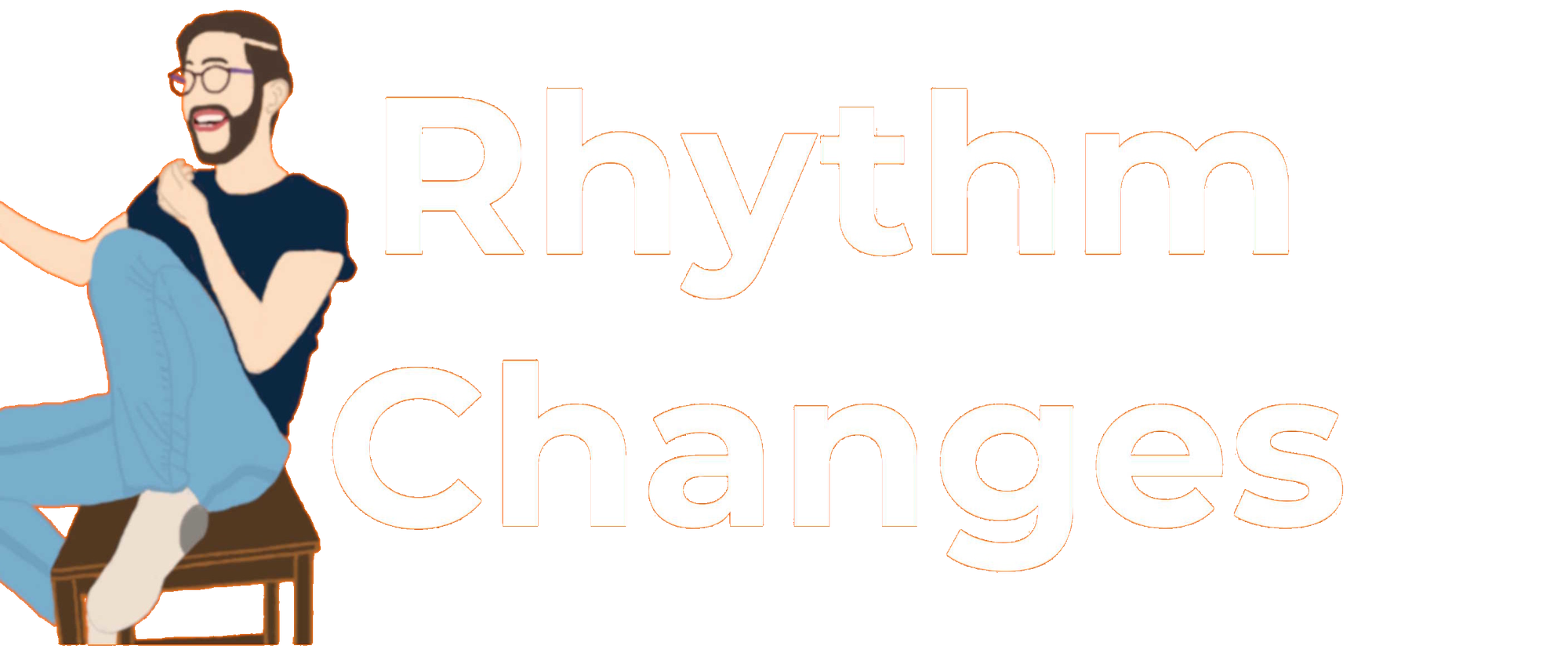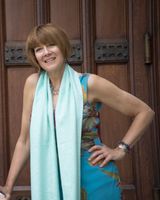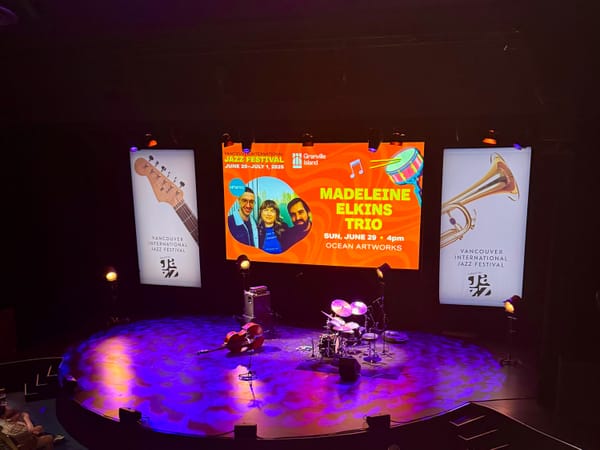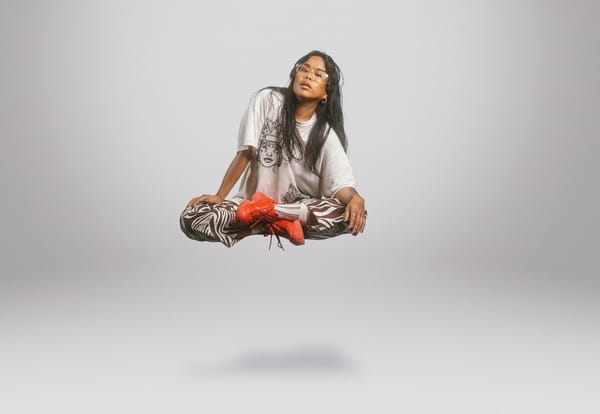Darren Radtke on his mentors & skills for working players
Beyond his role as an established Vancouver jazz bassist, he's also a guitarist & singer
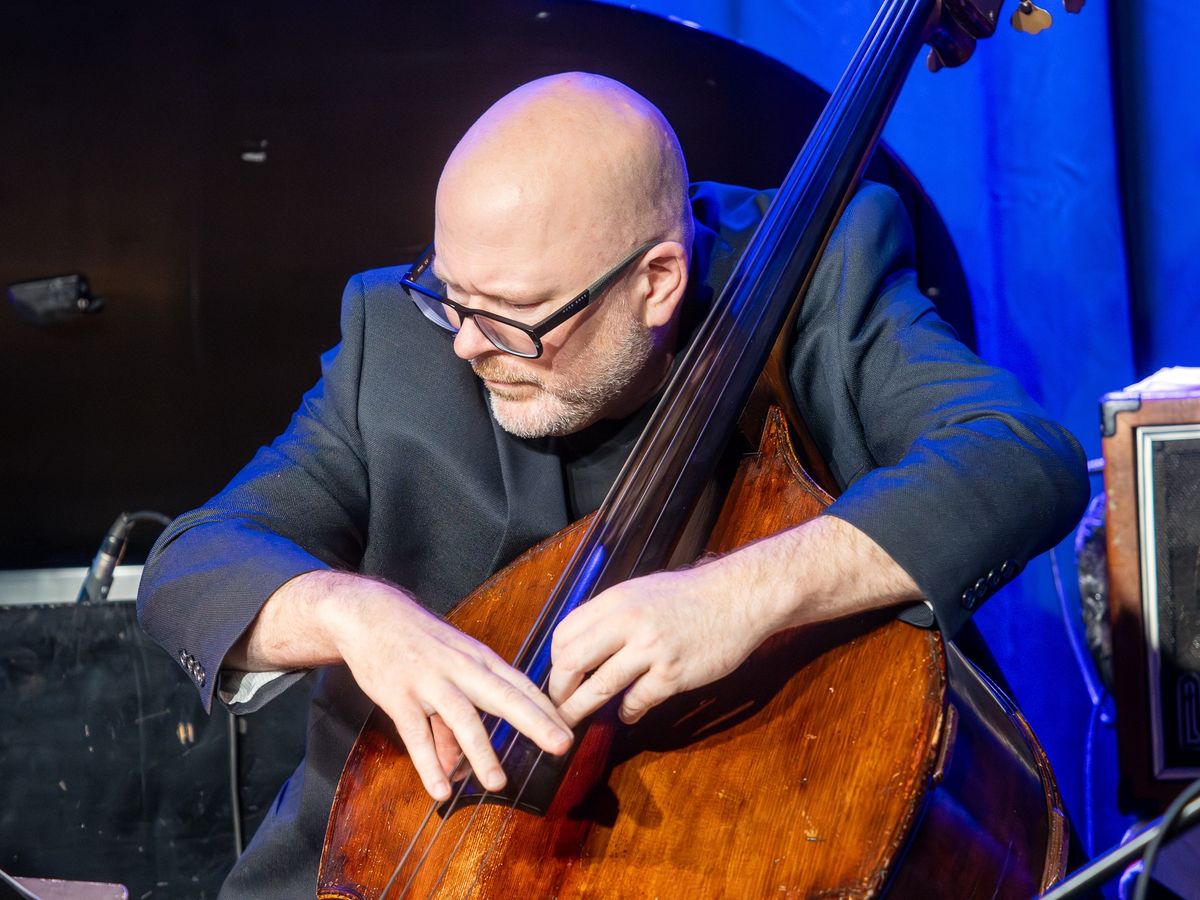
I recall the very first time I ever heard bassist Darren Radtke playing many years ago. This was during the Vancouver International Jazz Festival opening weekend, when it featured two large outdoor stages in Gastown. There were huge crowds of people moving from one end of Gastown to the other depending on which stage had the music at the time.
I moved my way through the crowd toward the sound of someone playing upright bass with great intensity, with a quality that captivated me even from a distance. I simply had to know who was playing, and as I was finally close enough, I was able to see a person with a serious and focused expression on his face as he played so beautifully. Oh yes! I do remember that day and although I cannot recall whom he was playing with, it was Darren on the bass.
I don’t know how much time passed, but at some point in my own musical life I was able to sing with Darren on bass and other times with him playing guitar. I had discovered that Darren liked to sing, and although I had never heard him do so, I invited him to sing a song as part of my mini-invitational Joy of Jazz concert series where we played together. Once again, the musicality Darren expressed when singing floored me. Such musical depth and honesty!
Earlier this fall I was compelled to ask Darren if he might agree to a Q&A session about music. Happily, he agreed to do so.
KP: Do you prefer to play the bass or the guitar, or are they both equal in your life?
DARREN RADTKE: I don’t prefer one over the other, but getting to be out on guitar does hold some novelty. I do that less. I’m usually with some version of the same few friends I often play with on bass, but it puts me in a different part of the band, so I get to interact with them differently.
KP: Are there genres other than jazz music that you enjoy listening to or playing?
DR: There aren’t many styles of music that I don’t like to listen to. I grew up in the 70’s and 80’s, so I had some pretty great music around me at all times. You couldn’t get away from it back then: turn on the radio or the TV, and you wouldn’t have to hang around long before something wormed its way into your head, your body, your life. We had ABBA, we had Blondie. We had Kenny Rodgers and Wille Nelson and Ronnie Milsap. Linda Ronstadt, Dolly Parton, Barbra Mandrell, Eagles... Holy cow, the list goes on and on. My parents are country music fans, so I have a deep appreciation for that music, especially of that era.
In my early years as a professional player – I’m resisting putting the word 'professional' in quotations, or the word 'player' for that matter – I did many gigs that were mostly popular music. Not necessarily top 40 material, but big crowd stuff, wedding bands, corporate events. You had to know a lot of tunes. There were dozens of tunes back then that I learned on the bandstand. I owe a lot of musicians for helping me on those jobs. I really enjoyed those gigs, but I don’t play them anymore, so now if I’m out I'm usually playing jazz.
KP: In your role as bassist in an ensemble, what do you think are the important considerations?
DR: Support. That is number one through ten on my list of most important considerations. My goal is to help the musicians around me to sound their best. If I can’t do that, the most I can hope for is to stay neutral. Do no harm: the Hippocratic oath for jazz. Those who know me know that I love to interact from the bass chair, maybe too much at times. There is a risk of going overboard with that, and I have definitely hit the water more than once in my life. I love to think that there is a counterpoint unique to any moment that has the potential to elevate the experience for everyone. Not just the band but the listeners too, of course, even if it is practically subliminal. It all comes down to the life of the moment. The trick is to help facilitate something special without drawing attention away from whatever the focus should be. I’m still working on that detail.
KP: Over the years what has come most easily to you in music studies: ear training or sight reading or, have both skills been equally accessible?
DR: Ear training, not even close. For whatever reason, it’s just how my brain is wired. I realized early on that I had a knack for it, so I was motivated to dig in and get better with it. I have a few hang-ups with it still, I won’t go into details. My wife's ears are really good. The things that are tough for me she handles with ease.
I’m an okay reader, though I used to be better when there was more work for me that required it. Studio work. I don’t think it was very often that I ruined a pass with a mistake, but I was never at the level of many around me at the time. I think Miles Black might actually have read a score upside down once. I’m only partly joking.
KP: Which came first in your life: guitar or bass and, how did those instruments arrive in your life?
DR: Guitar, at the age of seven, because my parents didn’t want a drummer in the house – especially a bad seven-year-old drummer. I made enough noise as it was, I’m sure. At some point later, I got it into my head that I wanted to play bass, so my dad ended up bringing home an old Beatle bass I think he purchased off somebody at work. One thing my folks didn’t do was discourage my sister or I from doing anything musical. My dad used to play guitar and sing really well, and I would try to keep up by thumping roots and fifths – of course not knowing about 1’s and 5’s – to all the chords as they went by. I remember asking my sister, "If a D went with G, what note would go with a C or a D?" She was ahead of me in music lessons, and between the two of us we were able to figure it out eventually.
When band class became an option in grade six, I wanted to play bass, but that was not allowed: it had to be a wind instrument. I picked the trombone, thinking that I would at least learn how to read bass clef to set me up for playing bass in high school, two years later. We had such great music teachers at my high school. I didn’t need to give up trombone to play bass; there were so many ensembles that I had a chance to play almost whatever I wanted.
KP: Who were some of your influential teachers who inspired and guided you in your earlier career?
DR: I have to start by mentioning Marty Summers and Kerry Querns, who were the schoolteachers I just referred to. Without their example and hard work, and the opportunities they presented, I’m pretty sure I would have gone a different direction. For this time frame I should also mention Doug Makela, Chad’s dad. Both of those guys are hugely important to me. I learned so much from them.
In college, there were many. Two that I have to list are Wes Caswell, my private music instructor at Grant MacEwan and Charlie Austin, who taught piano there, among other things. Wes is really important to me. He was so organized and focused. He taught me how to practice, how to get a little bit better every single day. Without his guidance, I would not have survived that place. Charlie was a mentor to almost everyone. Ask him anything to do with music, at any time, and you better get comfortable, I hope you packed a lunch. His responses were thorough and impassioned.
At Cap College there were others. Brent Gubbels was my first teacher on upright bass. I admire him so much, he’s such a great bass player and an even better person. Chris Nelson was a force of nature. I’m glancing over at the back cover of his Real Book from the 70’s or 80’s, he wrote his name and phone number on it in case it got left behind on a gig or whatever. It’s hangs on the wall here beside me. I love seeing his handwriting. Everyone has great stories about Chris. Rejean Marois was there. I had first met him years before in 1987 when he came out to the west coast to direct the BCMEA choir. I’m still trying to live up to the example he set way back then, pretty sure I will not. Brad Turner was teaching at Cap too, already. It would be hard to exaggerate his importance to me. We first met when I was still in high school, he played piano for me on a vocal audition tape. Spoiler alert: he sounded great!
There are people I met either in college, or not so long after, that I want to bring attention to, but I won’t mention names because I am terrified to miss one. Some of them are my closest friends. Some I saw yesterday, some I don't see often. All of them teachers to me in their own way.
KP: Are there musicians you listen to within any genre that delight or inspire you?
DR: Bob Dylan, Ron Hawkins, Gary Peacock, Joe Pass, Ed Bickert, plus about a thousand more.
KP: With respect to playing jazz and starting with the most important for you, how might you place the following list in order: Tonal quality, technique, intonation, time feel, groove, other?
DR: This is a great question, but answering it for me feels like saying having air is more important than having lungs. If it doesn’t feel good, it doesn’t matter, and if you don’t have a good sound, you don’t have anything. I’m not pretending to have the greatest sound, but if I’m not at least comfortable with it, I can’t do anything right. Of course with bad technique, you can’t do anything right for very long. Intonation? I rejoice in perfection as often as I marvel at the truth of imperfection.
KP: These days do you continue to practice certain exercises and techniques on your instruments?
DR: Yes, some materials I got from Wes and Chris still do the trick, and some bits and pieces I’ve developed for myself to address issues over the years continue to help.
KP: Do you have a warmup routine that try to include on days you have performances?
DR: Yes. More important than what is when. Get it done before 12-noon for a show that evening.
KP: I know you are a wonderful vocalist, Darren. I have rarely heard you sing however, each time I have heard you I have been deeply moved. Do you have any projects coming up where you might include some singing?
DR: That is a big compliment. It feels weird to me, having you even refer to me as a singer. I remember fondly the times you let me sing in your shows. Kate [Hammett-Vaughan] also got me to sing on her gigs from time to time. I’m grateful to both of you for that. And Sharon had me on the vocal jam night at Pat’s for a few years, that was fun.
Right now the only plans are in my dreams, but that doesn’t mean they don’t exist. I add about one new tune every 4-6 years. I almost have enough now for a show. There’s a tune I really want to sing that Natasha [D'Agostino] encouraged me to do. The words are clearly sung by a person with hair, so that poses a credibility problem. I’ve been working on a few new versions of the last stanza since about 2017, one of which I can almost live with. I’m not kidding that I actually dream of being able to sing that one day. Thank you for asking about this.
KP: What is it about the jazz genre that draws you in?
DR: I’m not exactly sure, but the first four chords of "Saturday In The Park" by Chicago was the start of it for me. Somebody told me that was jazz. I’m still looking for different ways to recreate the magic feeling I had the first time I realized what those chords were.
Thank you Darren!
